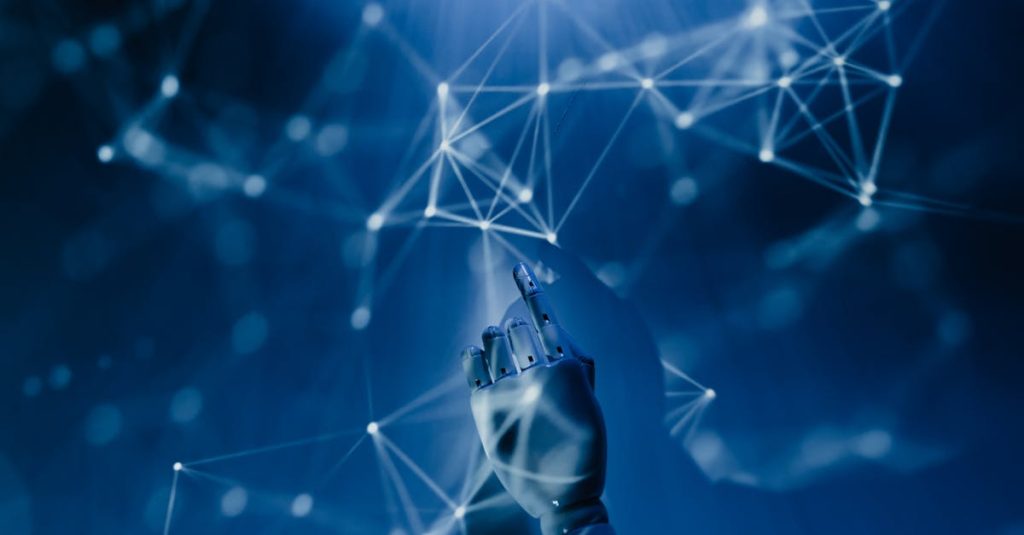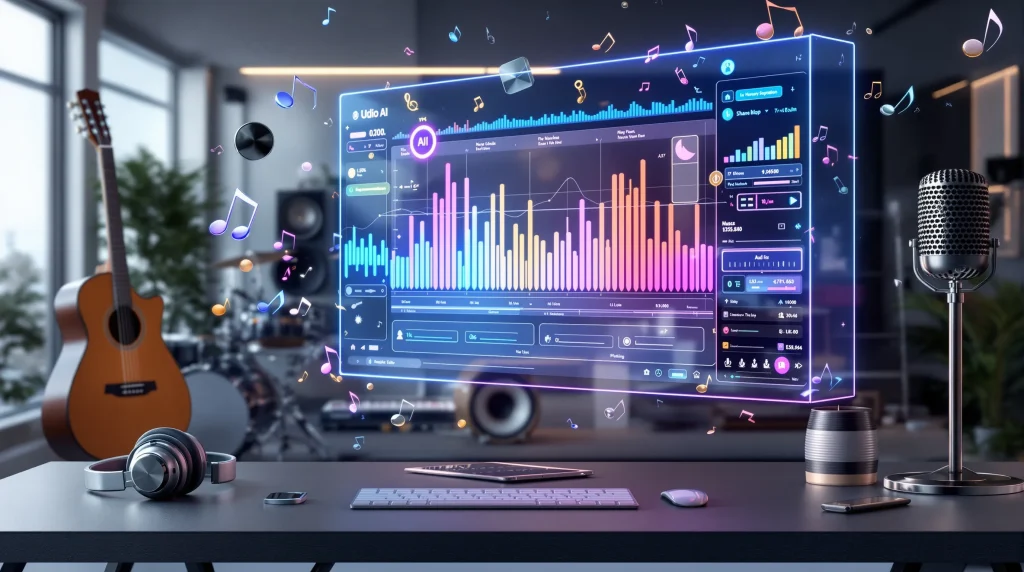AI voice ethics demand urgent attention as synthetic voices become indistinguishable from human speech, enabling realistic impersonations without permission. Musicians, producers, and content creators face new moral and legal challenges when AI tools replicate vocal performances or create entirely new voices. This article explores four core themes—ethical frameworks, consent management, copyright risks, and misuse mitigation—then looks ahead to regulation, offers guidance for creators, and answers common legal questions. Along the way, Mureka’s AI-driven instrumental generator and editor illustrate how responsible platforms can foster creative innovation while upholding ethical standards.
What Are the Key Ethical Concerns of AI Voice Cloning and Synthetic Voices?
AI voice ethics refer to moral principles guiding the creation and use of cloned or synthetic voices. Establishing an ethical baseline helps prevent harm, preserve trust, and respect individual identity. Ethical safeguards ensure that voice technology promotes transparency, equity, and accountability in creative workflows.
Key ethical considerations include:
- What Defines Ethics in AI Voice Cloning? Ethics in this context are defined by respect for personhood, ensuring that cloned voices are used in ways aligned with consent and fair representation.
- How Does Bias and Discrimination Affect Synthetic Voice Technology? Training data skewed toward certain accents or genders can entrench stereotypes and limit access to authentic representation.
- Why Is Transparency Important in AI Voice Use? Clear disclosure of synthetic audio origins builds audience trust and sets expectations for authenticity in music and media.
- What Are the Societal Impacts of Misusing AI Voice Cloning? Unchecked misuse can fuel misinformation campaigns, erode public confidence, and infringe on personal dignity.
The ethical implications of AI voice cloning are multifaceted, touching upon issues of copyright, image rights, and the potential for generating new musical works.
How Is Consent Obtained and Managed for AI Voice Cloning?

Informed consent for AI voice use is the legal permission granted by a voice owner before their vocal likeness is processed or replicated. Proper consent protocols protect privacy, set usage boundaries, and minimize liability for creators and platforms like Mureka.
Key aspects of consent management include:
- What Is Informed Consent for AI Voice Use? Informed consent requires clear explanations of how voice data will be recorded, processed, stored, and deployed in synthetic outputs.
- How Can Personal Voice Data Be Protected? Encryption, access controls, and anonymization safeguard recordings from unauthorized access and secondary misuse.
- What Are the Rights to Revoke Consent in AI Voice Cloning? Data subjects retain the right to withdraw permission and demand deletion of their biometric voice data under evolving privacy laws.
- How Do Consent Issues Relate to Deepfake Voice Technology? Deepfake risks intensify when consent is bypassed, enabling deceptive impersonations in fraud or political manipulation.
The rapid advancement of AI voice cloning has led to significant concerns regarding artists’ rights and the potential for unauthorized replication of their voices.
What Are the Copyright and Intellectual Property Risks in AI Voice Cloning?
Copyright risk in AI voice cloning arises when synthetic voices infringe on existing performance rights or replicate a recognizable artist’s style. Understanding ownership, infringement scenarios, and legal exceptions is essential for content creators and distributors.
Primary copyright concerns include:
- Who Owns an AI-Cloned Voice? Ownership typically resides with the person or entity that provided original voice recordings, unless a contractual assignment transfers rights.
- How Does Copyright Infringement Occur with Synthetic Voices? Unauthorized replication of a protected voice performance can constitute infringement if it reproduces distinctive vocal elements without license.
- What Is the Role of Fair Use in AI Voice Transformation? Transformative uses—such as parody or commentary—may fall under fair use, but the line is narrow and context-dependent.
- How Are Recent Legal Cases Shaping AI Voice Copyright? Emerging precedents in 2024–2025 underscore stricter scrutiny of AI-generated content and reinforce the need for clear licensing agreements.
Existing legal frameworks are being scrutinized to determine their effectiveness in addressing the challenges posed by unauthorized voice cloning and AI-generated content.
How Can the Risks of AI Voice Misuse and Deepfake Voices Be Mitigated?

Detecting and deterring malicious use of synthetic voices requires technical tools and legal strategies. By combining reliable detection methods with enforceable recourse options and ethical development practices, creators and platforms can limit abuse.
Key mitigation strategies include:
- What Methods Detect Deepfake and Synthetic Voices? Acoustic watermarking, machine-learning classifiers, and forensic analysis identify unnatural spectral anomalies and usage patterns.
- What Legal Recourse Exists for AI Voice Impersonation? Affected individuals can pursue claims under tort law, voice personality rights, or anti-deepfake statutes in jurisdictions that recognize biometric protections.
- How Can Responsible AI Voice Development Prevent Misuse? Embedding usage controls, consent checks, and transparency labels during model training discourages unethical deployments.
- What Role Do AI Platforms Like Mureka Play in Ethical Voice Use? Mureka’s music creation tools exemplify responsible platform design by enforcing user agreements, guiding best practices, and promoting clear attribution of synthetic audio.
What Is the Future of AI Voice Cloning Regulation and Ethical Standards?
Emerging laws and industry guidelines are converging to establish clearer boundaries for AI voice technology. Anticipated regulatory trends emphasize accountability, data protection, and fair competition in synthetic media.
Anticipated developments include:
- What Emerging Laws and Policies Govern AI Voice Technology? Proposed statutes in the EU and U.S. target biometric consent, require AI disclosures, and impose penalties for deceptive deepfakes.
- How Are Industry Best Practices Evolving for Ethical AI Voice? Voluntary standards from AI ethics consortia advocate bias audits, model documentation, and stakeholder engagement throughout development.
- How Will AI Voice Ethics Impact Musicians and Content Creators? New compliance requirements will shape contract negotiations, sampling agreements, and creative workflows in studios and home-based setups.
- What Technological Advances Could Shape AI Voice Ethics? Future integration of traceable digital signatures, on-device voice synthesis, and federated learning may enhance privacy and reduce centralized misuse.
How Can Musicians and Content Creators Protect Their Rights Against AI Voice Cloning Risks?
Proactive measures empower artists and producers to safeguard their voices and compositions when AI tools grow more advanced. Best practices span contractual, technical, and organizational approaches.
Essential protective steps include:
- What Are Best Practices for Obtaining Consent in AI Voice Use? Use clear, written consent forms that specify permitted uses, duration, territory, and revocation processes before any voice capture.
- How to Safeguard Your Voice and Intellectual Property? Register voice trademarks where available, embed inaudible watermarks, and leverage digital rights management systems to monitor usage.
- How to Navigate Copyright Challenges in AI-Generated Audio? Consult specialized legal counsel, draft licensing agreements that cover AI transformations, and document creative contributions to support future claims.
- What Tools Help Detect and Prevent AI Voice Misuse? Adopt forensic analysis services, deploy real-time watermark scanners, and subscribe to monitoring tools that flag unauthorized synthetic renditions.
What Are Common Legal Questions About AI Voice Cloning and Deepfake Copyright?

Quick answers to pressing legal queries clarify the boundaries of synthetic audio and guide informed decision-making for creators and platforms alike.
Core legal clarifications include:
- Is AI Voice Cloning Legal Without Consent? No, cloning a voice without permission generally breaches personality and privacy rights, and may violate jurisdictional anti-deepfake laws.
- Can AI-Generated Voices Be Copyrighted? Copyright protection typically covers original human-authored works; purely AI-generated voices lack direct copyright unless substantial human creative input is evident.
- What Are the Ethical Concerns of Deepfake Audio? Deepfake misuse risks include identity fraud, reputational harm, misinformation, and erosion of trust in digital media.
- How Can AI Voice Misuse Be Prevented? Prevention relies on informed consent, technical detection, clear labeling of synthetic speech, and enforceable legal frameworks.
Artists, producers, and tech enthusiasts must remain vigilant as AI voice cloning continues to mature. By embracing ethical frameworks, securing informed consent, understanding copyright boundaries, and deploying mitigation tools, creators can harness generative audio without sacrificing integrity. Platforms like Mureka demonstrate how user-focused design and transparent policies foster innovation while protecting rights.
In the coming years, regulatory clarity and responsible development will shape a creative ecosystem where AI voice ethics underpin both artistic freedom and public trust.



